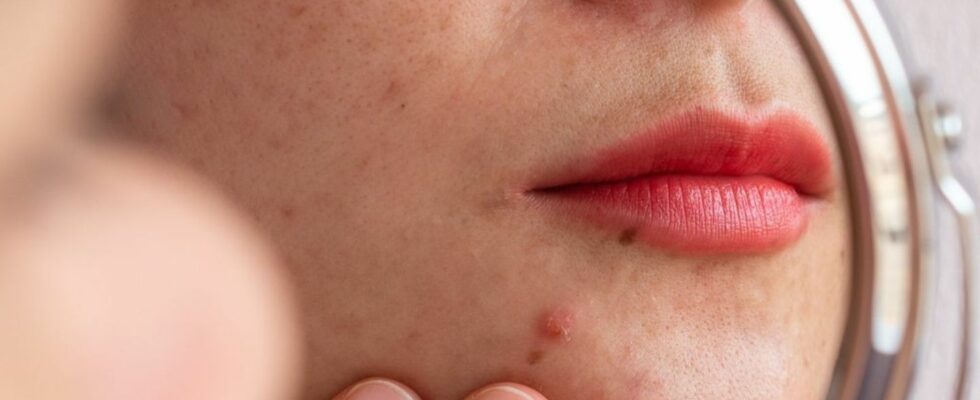Acne in adulthood
What can be behind late acne and what helps
Pimples aren’t just a teenage problem.
© Boyloso/Shutterstock.com
Over 25 and still affected by acne? Many people suffer from pimples even in adulthood. What helps?
Is impure skin and acne a problem for teenagers? Not necessarily. Even after 20 years, the topic has not been ticked off for many people. Many people are surprised when they suddenly find themselves faced with pimples and blackheads in adulthood. Acne in adults is not uncommon and even has its own name: acne tarda or late acne. According to the German Medical Journal, 20 to 40 percent of people over 25 suffer from late-onset acne. It often appears on the face, back, neck or décolleté. The reasons for this are usually a little more complicated and varied than in teenage years. The good news: There are many possible solutions.
Hormones
During teenage years, hormonal changes often lead to skin problems. But even well after the age of 20, hormones continue to change. When hormones fluctuate, the skin produces more oil, which then clogs pores and leads to breakouts. Women are particularly often affected by hormonal changes and the resulting acne – often in the days around their period or during pregnancy. But men with high testosterone levels also suffer more often from adult acne.
Solution: A visit to a gynecologist or endocrinologist may be advisable here. Hormone therapy can help stabilize hormonal balance.
Medication or nutritional supplements
What solves one health problem can cause another: hormonal medications such as birth control pills, steroids or those containing lithium can cause acne. Supplements containing high doses of B vitamins, particularly B12, have also been linked to acne.
Solutions: Seek medical advice before taking medication or dietary supplements. If acne still occurs, adjust the dosage if necessary or switch to an alternative preparation.
genetics
The natural condition of the skin and genetic predisposition are also crucial. People whose parents or siblings suffer from acne may be at increased risk of having it themselves. Genetics influence, among other things, sebum production, the tendency to inflammation and the skin’s ability to regenerate. Those who tend to have oily skin are also more likely to suffer from skin blemishes.
Solution: An individualized skin care routine tailored to your skin type can help reduce natural sebum production.
Stress and lifestyle
Stress plays a crucial role in the development of acne. The body responds to stress by releasing cortisol, which in turn can increase sebum production. An unhealthy lifestyle with poor diet, little sleep and lack of exercise can contribute.
But where you live also influences the health of your skin: environmental influences such as polluted air or UV radiation can stress the skin and promote acne.
The cause can also lie in the skin care products. Products that are too rich or comedogenic can clog pores and promote inflammation.
Solution: Sunscreens can protect the skin not only from UV radiation, but also from air pollutants. Proper and regular cleaning is also important. Sufficient sleep, enough water and a balanced diet also contribute to clearer skin.
Treating acne at home
Mild acne can usually be easily treated with over-the-counter products from the pharmacy or drugstore. A detergent containing benzoyl peroxide can be used on the body and face to combat acne. It has antibacterial and anti-inflammatory effects. Azelaic acid is another agent that is well tolerated. It is available as a gel or cream and helps with mild to moderate acne.
However, these products can dry out and easily irritate the skin. An alternative is glycolic acid: it is contained in many creams or cleansers, naturally exfoliates the skin and moisturizes.
Particularly important when treating acne: be patient and remain consistent. It can take four to six weeks for products to work and for the skin to renew itself.
When is it time to see a dermatologist?
If the over-the-counter products from the pharmacy or drugstore do not work after several weeks of use or if scars form, it is time to see a dermatologist. They can determine the exact cause of the acne and recommend a tailored treatment.
